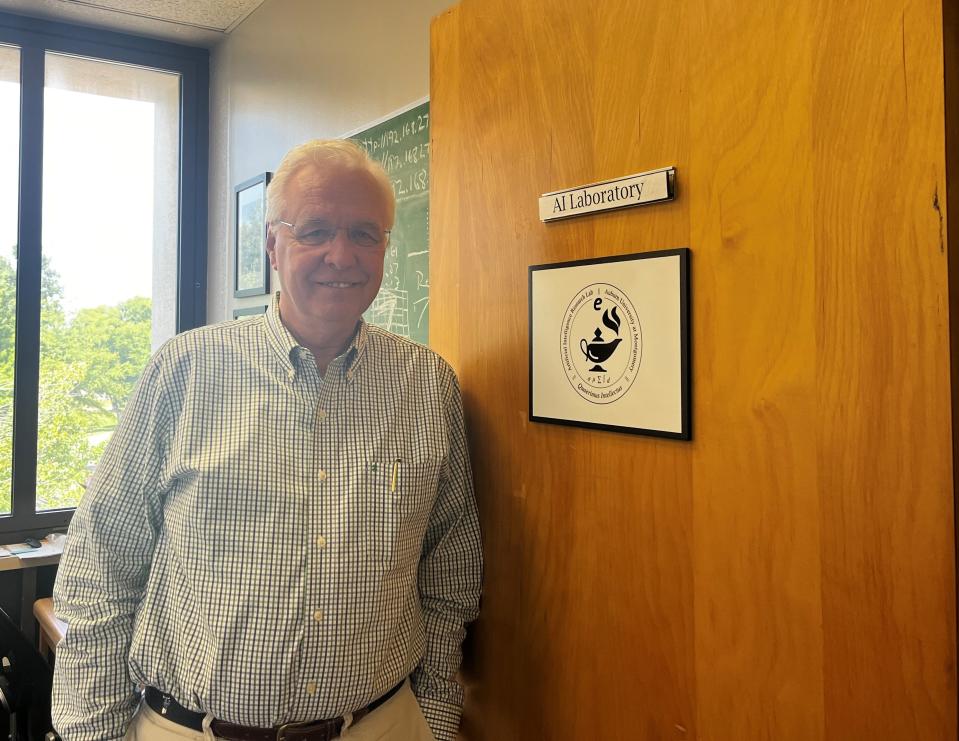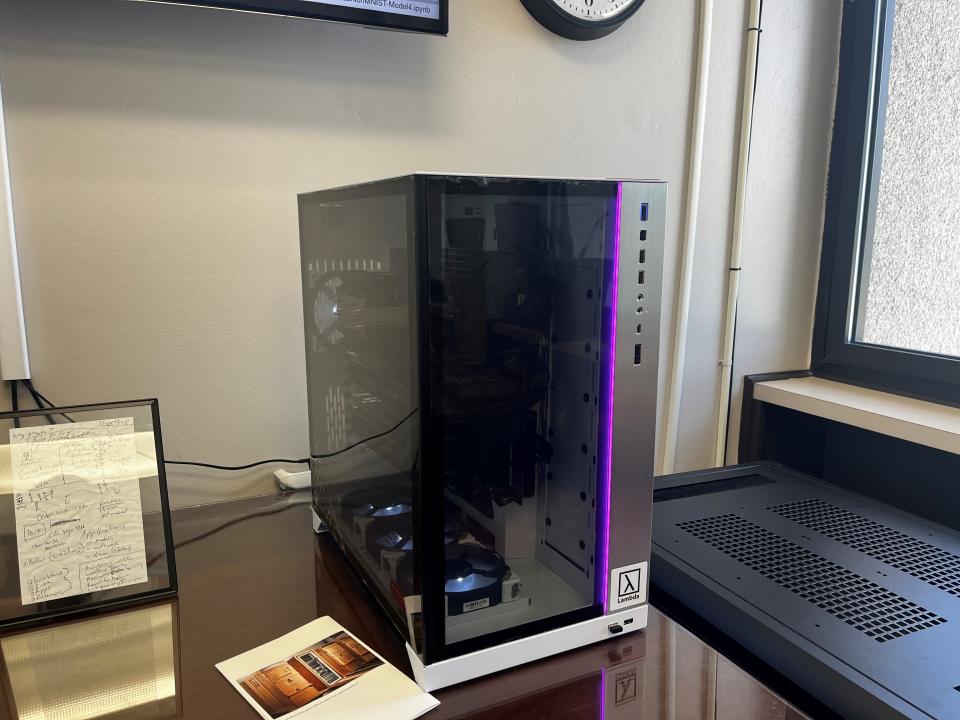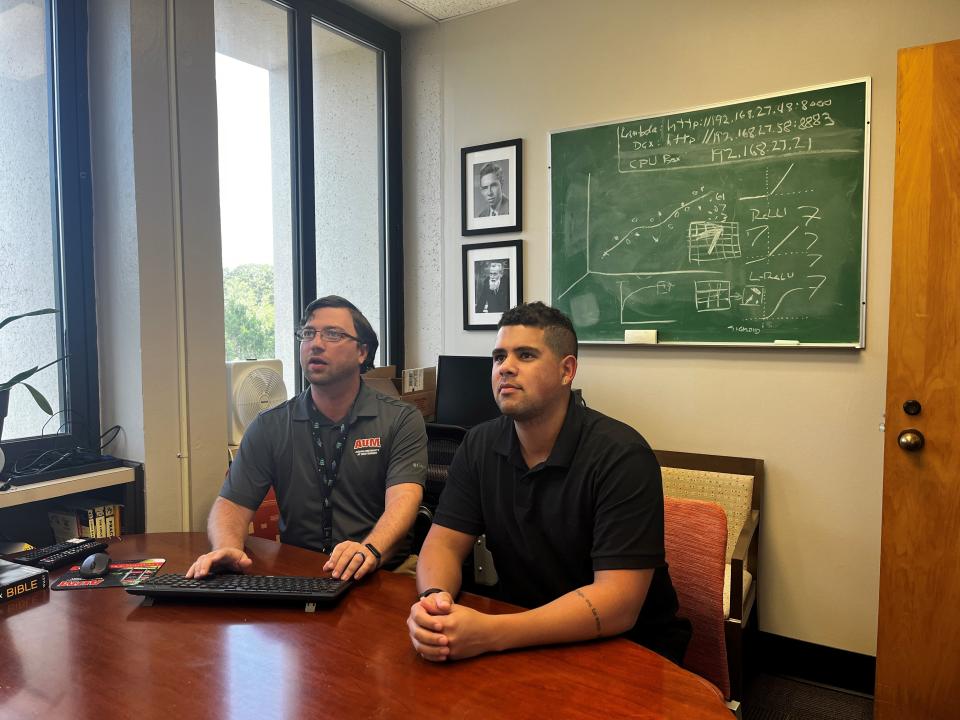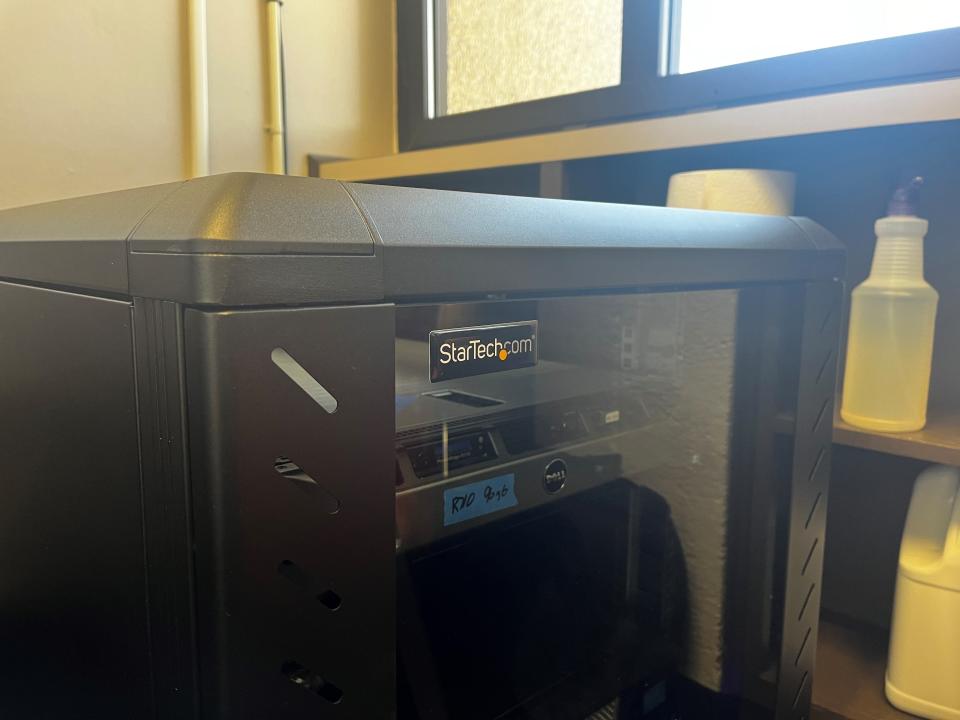Auburn University at Montgomery's new AI lab attracts attention from major tech companies
People shouldn’t be afraid of artificial intelligence. They should be excited about where it can lead — at least according to those operating Auburn University at Montgomery’s new AI lab.
“Our brains only can aggregate so much information,” AUM AI Director Jim Locke said. “But when you let the AI look at lots of data, it doesn't have those limitations like we do.”
The computer doesn’t just speed up the research process. It picks up patterns and connects dots that would be indiscernible to an individual.
On a warm July afternoon last week, Locke sat in the lab surrounded by powerful computers, equations scribbled on a chalkboard and framed photos of famed scientists. This space became his homebase on campus as the school ramped up its focus on artificial intelligence classes and research.

While the concept of computer capability has been of interest for decades, the last two years have seen rapid AI development and adoption, from DALL-E’s generated photos to convincing essays and speeches from ChatGPT. The general public flocked to these AIs for entertainment, but researchers like Locke were thinking about how they could practically implement the technology into education.
At AUM, the business school seemed like the perfect place to start, so in the fall of 2022, Locke offered the university’s first AI class.
“The people who are going to be making the decisions about how and where AI is used, deployed in situations and applied to problems are going to be managers, leaders, and those people are typically trained in business schools,” Locke said. “We're the only business school in the state doing this, pretty much in the country.”
Both the University of Alabama and Auburn University have AI programs, but theirs are based in the college of engineering.
Since AUM’s program began, it has attracted attention from two massive industry leaders: Nvidia and Microsoft. Locke said both have been very supportive of the school and interested in how it is utilizing AI.

Some active research projects in the lab include studying correlations between traumatic brain injury and long-term addictive behavior, developing a system to organize the agriculture sector in India and establishing a new method of training AI in facial recognition.
For the brain injury study, the lab is partnering with clinics and treatment centers in Pennsylvania and Texas. The centers provide secure data about patients, and the AUM lab runs the data through AI to look for certain findings.
One of the clinics recently sent over more than 800,000 rows of data, and it took less than two days to format, run through the AI model and discover a new pattern. The pattern showed that after people get out of addictive treatment, there is a spike in relapses when people age into the next decade of their lives.
“So the result is the clinic says, ‘Well, we need to track those patients more closely when they go from 29 to 30 and 39 to 40,’” Locke said. “That was just right in front of us. And they had never seen that before.
Two of the students working on that project are Rodney Easter Jr. and Guilherme Bittencourt. Both have always been very interested in computer science, and when Locke began recruiting for the AI lab, they were two of the first students to jump on board.

“The AI class, they announced it last summer in a newsletter, and I emailed my advisor within an hour,” Easter said. “There’s just several of us where it was like blood in the water, and we were sharks, just ready.”
Bittencourt, who is an international student from Brazil working toward his masters from AUM, sees AI as a way to get ahead, a skill to have that will set him apart.
“AI is coming, and it's coming hard. You have to innovate yourself,” he said. “At some point, we're gonna have to put our fear away and learn about it.”
Locke has seen this passion in AUM’s AI students for the last year. This summer he said the program started seeing more interest from private companies and government agencies across the state, including Baptist Health, Air University and the Alabama Law Enforcement Agency.
Many of them have reached out in hopes of getting a professional like Locke to help them answer the question: “How can AI help me?”

“There's such a vacuum of organization or leadership in this area, and we're beginning to fill that, which is part of our mission,” Locke said. “Now, people are coming to us.”
As the demand keeps ticking upward, AUM’s program is growing to accommodate it.
And if any project starts to remind him too much of a sci-fi movie, Locke says he’ll just unplug the computer.
Hadley Hitson covers children's health, education and welfare for the Montgomery Advertiser. She can be reached at hhitson@gannett.com. To support her work, subscribe to the Advertiser.
This article originally appeared on Montgomery Advertiser: Inside AUM's new artificial intelligence lab and its research

